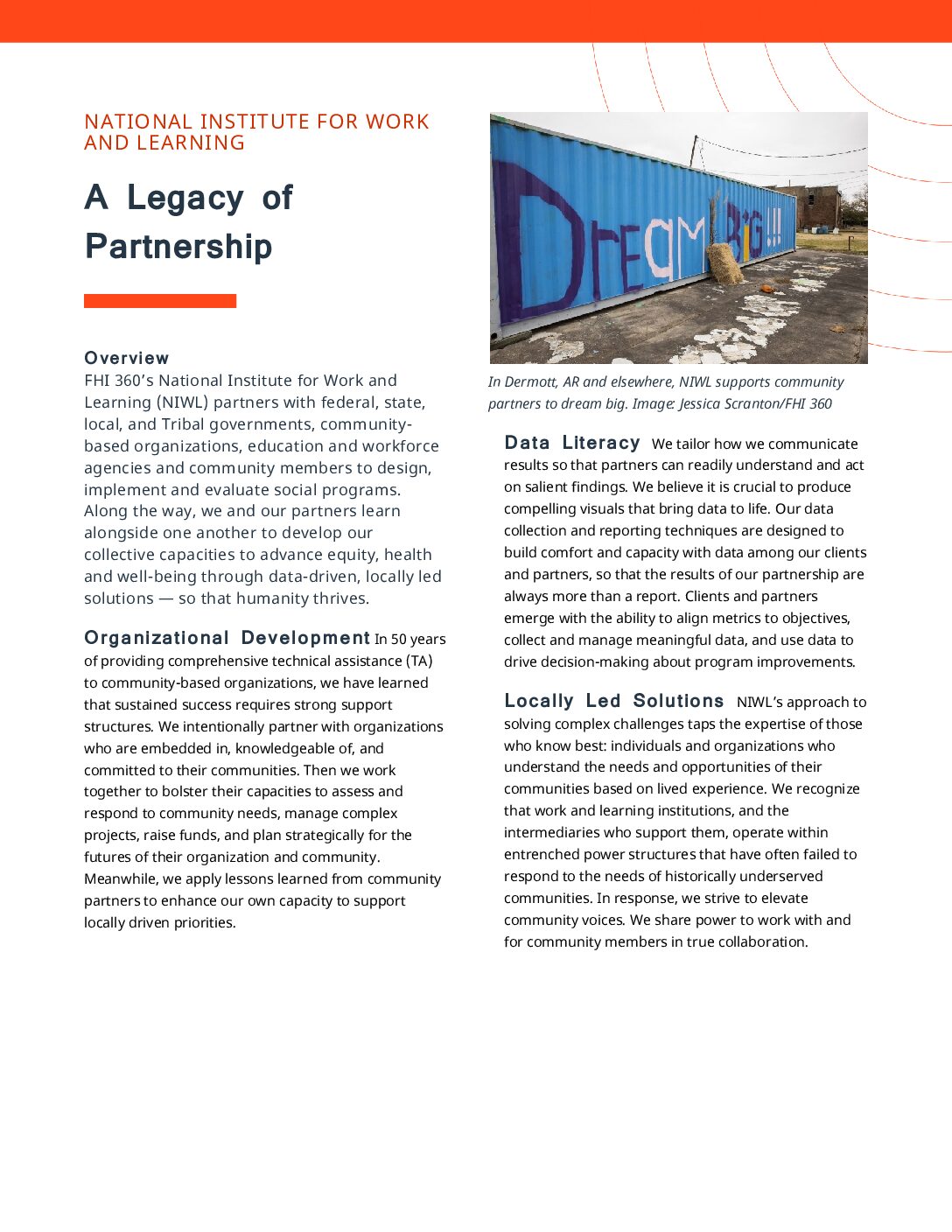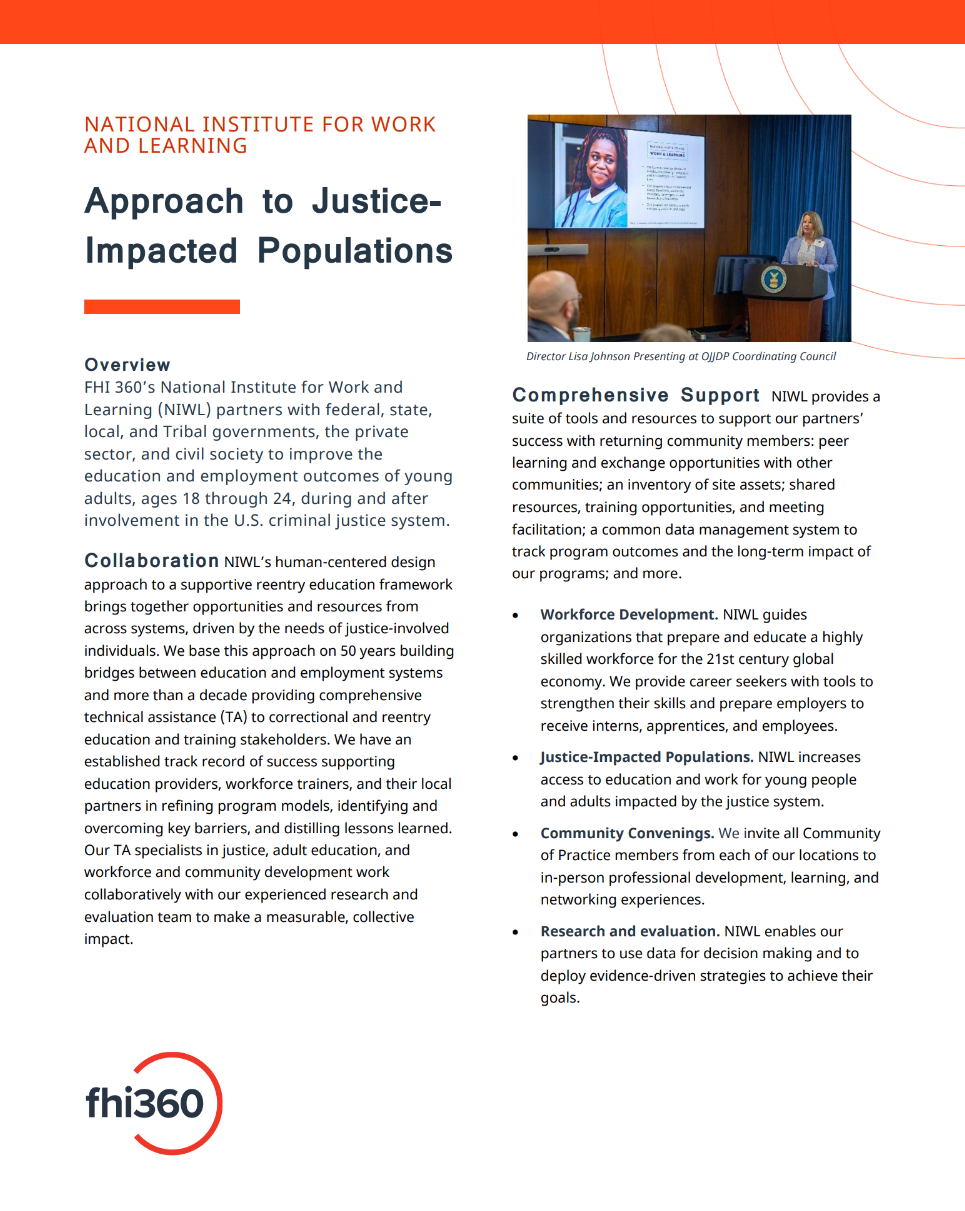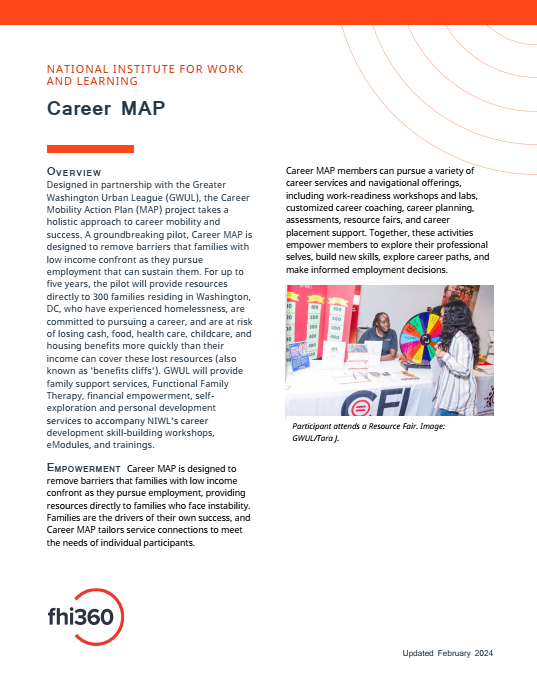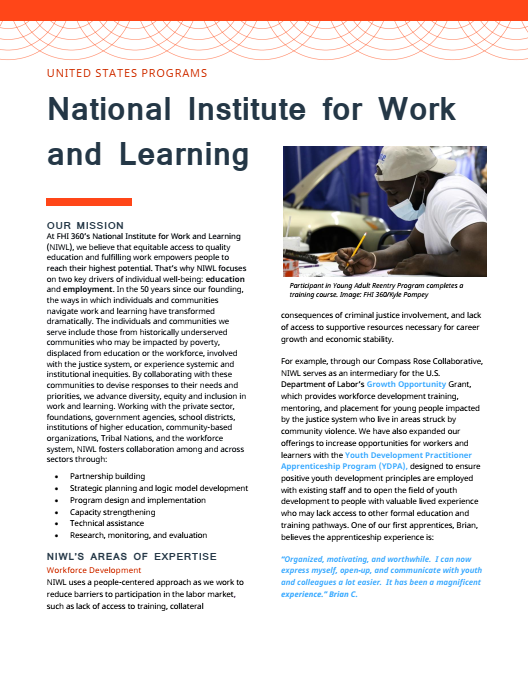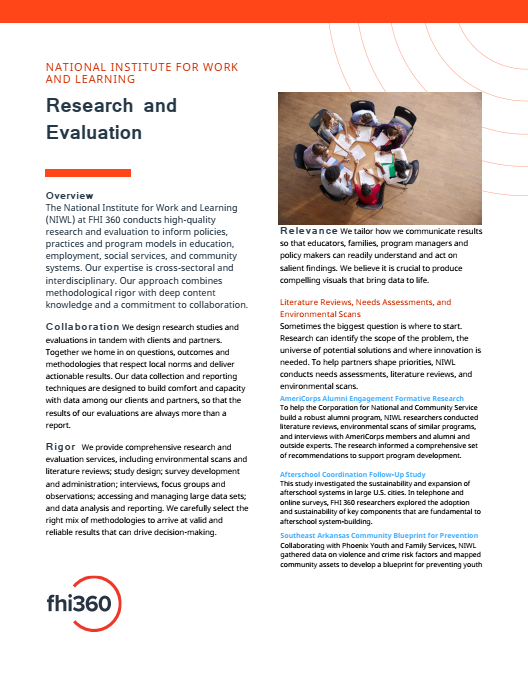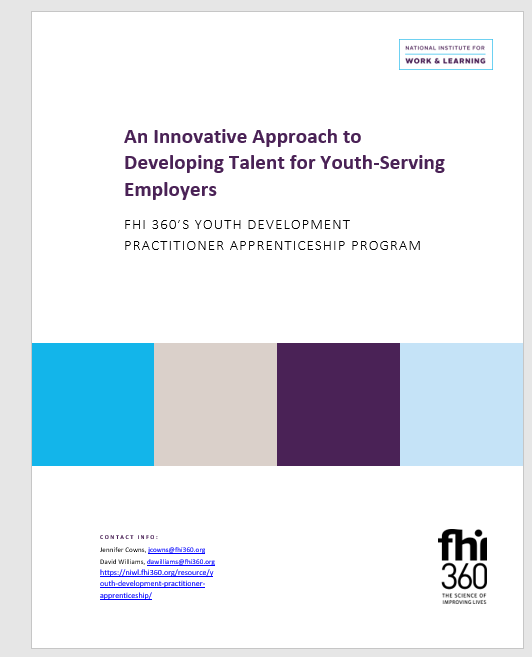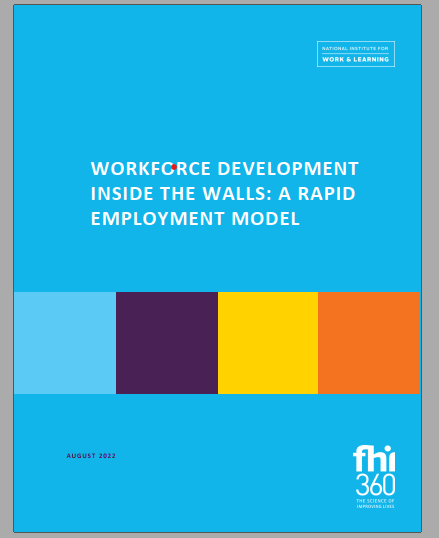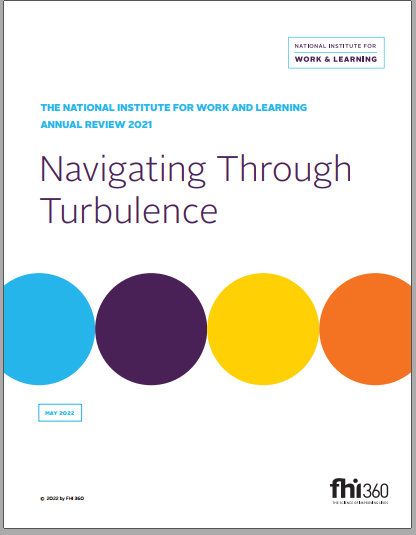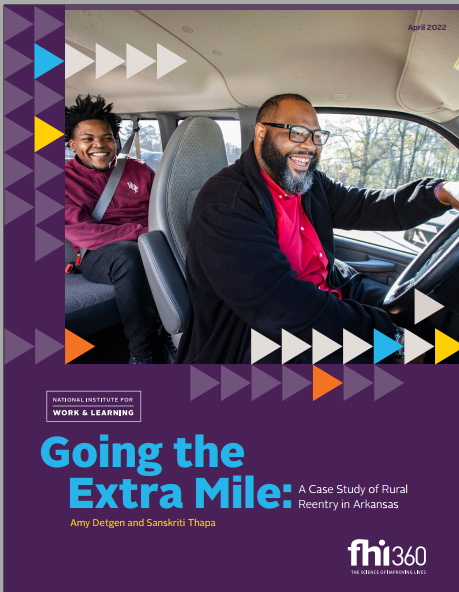FHI 360’s National Institute for Work and Learning (NIWL) partners with federal, state, local, and Tribal governments, community-based organizations, education and workforce agencies and community members to design, implement and evaluate social programs. Along the way, we and our partners learn alongside one another to develop our collective capacities to advance well-being through data-driven, locally led solutions — so that humanity thrives.
Audience: Community-based Organization (NGOs)
Our work in 2023 highlights our pivotal role as an intermediary organization. In fulfilling our mission to advance solutions in education and workforce systems, we focus on bringing people together, listening to our partners and local leadership, fostering networks of support and providing a comprehensive spectrum of services for learning and workforce development.
Read NIWL’s 2023 Annual Report to learn more about our work to strengthen our partners and forge connections so that we can all reach our fullest potential.
Just looking for the highlights? Check out our 2023 Infographic.
FHI 360’s National Institute for Work and Learning partners with federal, state, local, and Tribal governments, the private sector, and civil society to improve the education and employment outcomes of young adults, ages 18 through 24, during and after involvement in the U.S. criminal justice system. Read this overview of our comprehensive services.
Designed in partnership with the Greater Washington Urban League (GWUL), the Career Mobility Action Plan (MAP) project takes a holistic approach to career mobility and success. A groundbreaking pilot, Career MAP is designed to remove barriers that families with low income confront as they pursue employment that can sustain them.
This fact sheet profiles the work of FHI 360’s National Institute for Work and Learning (NIWL), which focuses on two key drivers of individual well-being: education and employment.
The National Institute for Work and Learning (NIWL) at FHI 360 conducts high-quality research and evaluation to inform policies, practices and program models in education, employment, social services, and community systems. Our expertise is cross-sectoral and interdisciplinary. Our approach combines methodological rigor with deep content knowledge and a commitment to collaboration.
FHI360’s Youth Development Practitioner Apprenticeship program offers employers the opportunity to recruit and train employees while giving back to the community and filling their talent pipeline. YDPA targets both existing professionals and opens options for new professionals with lived experience in the communities they serve. Occupations include youth service intake counselors, outreach workers, or justice reentry case workers among others.
FHI 360 has launched the Post-Release Employment Program (PREP) to fast-track participants from behind bars to employment within six weeks. Participants complete two-thirds or more of the employment training pre-release with expedited connection to employers upon graduation. PREP is designed to respond to the critical needs and challenges of individuals returning from jails or prison into their communities.
This annual review summarizes the work and accomplishments of the National Institute for Work and Learning across the areas of college and career readiness, workforce development, and research and evaluation. It references major projects, publications and events, and uses data to demonstrate outputs and, where possible, outcomes. The review also mentions new work won and our agenda for 2022.
Going the extra mile: A case study of rural reentry in Arkansas provides an exploration of a rural community in southeast Arkansas that takes a unique, individualized approach to reentering young adults ages 18-24. The received wisdom on rural reentry is that it is generally more difficult than reentry in an urban setting. Phoenix Youth and Family Services, which serves a rural part of Arkansas, has excelled on key outcomes as part of FHI 360’s Compass Rose Collaborative (CRC)1, a project funded by the U.S. Department of Labor to improve the education and employment outcomes of young adults,
ages 18 through 24, after involvement in the U.S. criminal justice system.
Phoenix Youth and Family Services provides wraparound support services to its participants to help juveniles, young adults, and families secure a safe, healthy, and strong life

